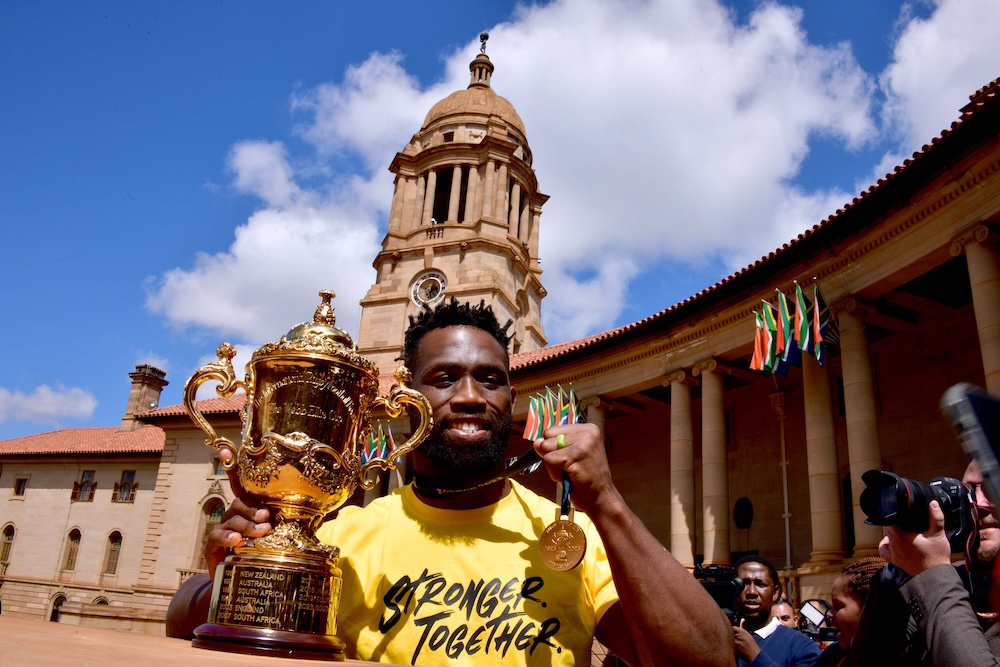Embracing change like champions

By Tom Marsicano, CEO of 'and Change’
Every South African recalls the surge of pride and unity felt when the final whistle heralded the Springboks' triumphant victory in Paris. Streets erupted in jubilation, a nation united in a single, resounding voice of support, celebrating not just a win in rugby but a symbol of our collective strength and fortitude.
The Springboks' consecutive Rugby World Cup victories stand as more than a testament to their prowess on the field; they reflect a journey marked by adaptability, resilience, and strategic foresight, which embodies critical lessons in change management, highly pertinent to South African corporations today. However, it also signals their ability to adapt to changes in the team, the sport, and the environment.
Historically, the Springboks' evolution, especially regarding racial inclusivity, mirrors the country's journey towards a more diverse and inclusive society. From a team once symbolic of apartheid, the Springboks have transformed into a beacon of unity, reflecting South Africa's diverse fabric – a strategic shift in culture, identity, and proof that well-managed diversity is indeed powerful.
In the corporate context, this echoes the need for businesses to embrace diversity and inclusivity, not only as a moral imperative but as a strategic advantage. Research has consistently shown that diverse teams are more innovative, effective in problem-solving, and better at anticipating consumer needs and market dynamics shifts. Integrating diverse individuals into an organisation is a gradual but essential process: hiring people from diverse backgrounds and ensuring they feel equally valued.
A strategic and structured approach to change is paramount here.
A clear vision and specific actions from management can guide successful change management. The Springboks' comprehensive developmental programmes include the Rugby Education Foundation and long-term development plans for players, coaches, and referees. These initiatives demonstrate a long-term view of change, focusing on immediate gains and sustainable development. Effective change management also requires active involvement from leaders, a principle embraced by the Springboks. The team's leadership's commitment to fostering a culture of inclusivity and excellence is evident in their strategic objectives and incentive policies for demographic regulation. This approach ensures not just setting targets but actively working towards achieving them.
Leaders must articulate a clear vision for the future, engage employees at all levels, and foster trust and leader collaboration. Here, emotional intelligence becomes a crucial component. Understanding one's role, how it relates to others, and the impact of one's actions on broader organisational goals is vital. This principle is evident in the Springboks' plans, encompassing a broad spectrum of participation targets and acknowledging the diverse roles within the rugby ecosystem.

Delving into strategy and leadership, the Springboks' approach to game planning and execution parallels the strategic agility required in business. For instance, their meticulous analysis of opponents, adapting tactics to match different teams and conditions, is akin to how businesses must analyse market trends, competitor strategies, and internal capabilities.
The team's resilience, particularly in high-pressure situations, is another critical takeaway. The ability to perform under pressure, bounce back from defeats and constantly evolve tactics reflects what businesses face in today's fast-paced, often unpredictable market environment. Studies in change management highlight that change-capable organisations are more likely to sustain performance during turbulent times. This resilience in businesses, much like in sports, is often cultivated through a strong organisational culture that fosters change management, adaptability, development, and a shared sense of purpose.
Another vital aspect is the continuous learning and improvement ethos demonstrated by the Springboks. Their focus on honing skills, embracing innovative training methods, and learning from each performance resonates with the corporate need for continuous improvement. In the business context, in times of change, this translates to investing in building change management competency, embracing innovative technologies, and fostering a caring culture.
As the Springboks have demonstrated, change management is a multifaceted endeavour requiring visionary leadership, a commitment to diversity, and a strategic approach that blends tradition with innovation. Embracing these principles can help businesses navigate the complexities of today's market, adapt to rapid changes, foster innovation, and build a resilient, high-performing organisation.
In a world where change is the only constant, the Springboks' journey offers more than just a blueprint for success; it inspires. Their story teaches us that the heart of effective change lies in committed and involved leaders who build the capability to change in their people, structures and processes.
Tom Marsicano is the CEO of 'and Change', a global advisory and change management consultancy.
.jpg)
FIND MORE LEADERSHIP LESSONS IN THE 13TH EDITION OF TOP500:


.svg)











